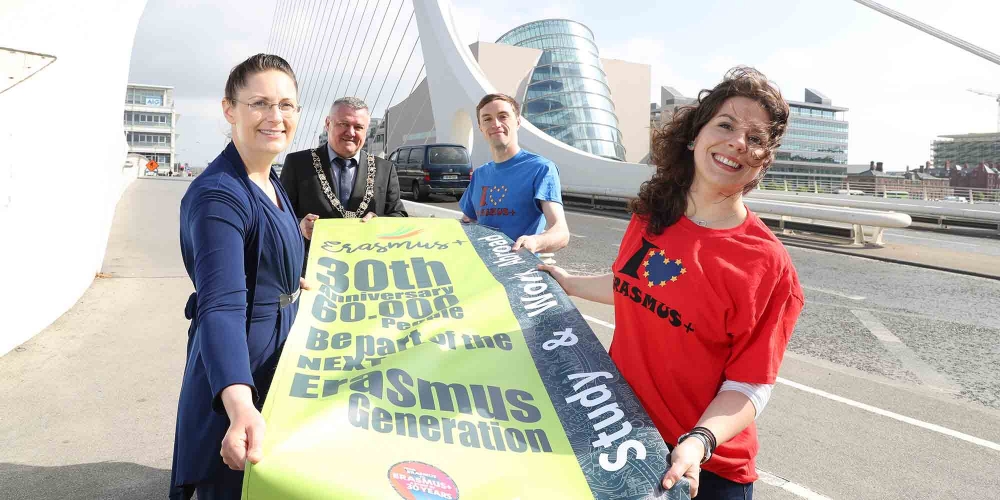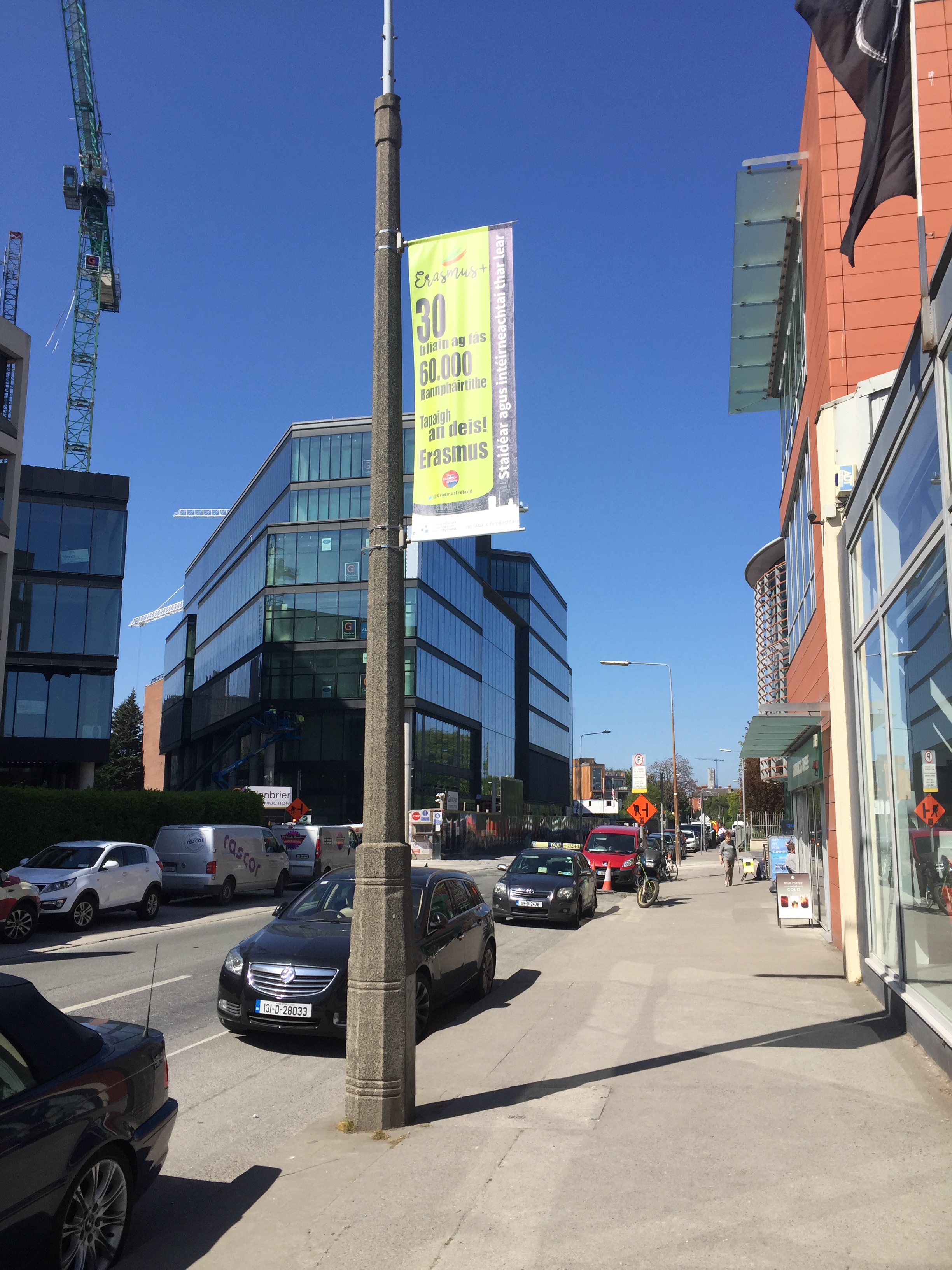
Erasmus 30th anniversary banners launched by Lord Mayor of Dublin
By newgraphic
30 years of Study, Work and Travel for over half a million Europeans travelling to and from Ireland thanks to the Erasmus+ programme
Since 1987, over 60,000 higher education students and staff from Ireland have travelled for periods of study and/or work in 32 other European countries under the EU’s Erasmus Programme. In addition, the programme has seen more than 100,000 other Europeans come to this country on similar exchanges generating in the process an additional 500,000 visits from family and friends to Ireland in that period. As the programme celebrates its 30th Anniversary, the Erasmus+ National Agency at the Higher Education Authority plans to raise the total outward bound number of students and staff for the Erasmus+ period 2014-2020 to 25,000 mobilities.
Mr Gerry O’Sullivan, Head of International Education at the Higher Education Authority, added that “the Erasmus+ programme now has a presence on all continents and offers a powerful EU statement that through collaboration Europe can greatly enhance the educational journey of students”.
In 1987, the then European Commissioner, Mr Peter Sutherland, launched the programme. Thirty years later, it has undergone a massive evolution. Erasmus +, as it is now known, provides funding for learning exchanges across all educational sectors and across all continents.
In addition to facilitating the mobility of people, a significant portion of annual funding is devoted to projects which are designed to develop best practices in other areas of higher education.



